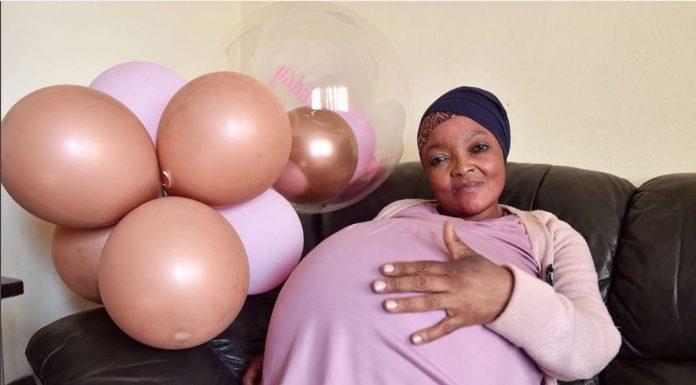Johannesburg – While some women suffer from infertility, others can have multiple babies with one pregnancy – and naturally so.
But multiple babies are highly unusual and dangerous to both the newborns and the expecting mother.
Reproductive medicine specialist Dr Lizle Oosthuizen said though twins and triplets can happen naturally, it is very unlikely that a woman can ovulate so many eggs or have so many embryos split without fertility treatment.
She said when an egg and a sperm combine, they form an embryo.
Multiple pregnancies can be from multiple eggs being ovulated, or from embryos splitting.
Also read: Gosiame Tsotseti’s family confirms the 10 babies are doing well
She said while with fertility treatment, specifically in-vitro fertilisation (IVF), the chances of an embryo splitting are usually less than 5%, it does happen.
Oosthuizen explained that some couples have a predisposition to multiple pregnancies in their family, adding that as women age, they are more likely to ovulate an extra egg each cycle, and if both eggs are fertilised and implanted, that can result in a multiple pregnancy.
“If there are multiple eggs, then they all have the potential to be fertilised.
“We have to remember that normal ejaculation will have millions of sperms, whereas usually a woman will only ovulate a single egg naturally,” said Oosthuizen.
She noted that a multiple pregnancy is both dangerous to the mother and the babies.
The mother is at risk of developing complications in pregnancy such as hyperemesis, in which her morning sickness is so severe she requires admission to hospital to manage it; an increased risk of miscarriages; and increased risks of diabetes and life-threatening high blood pressure.
Have you read: Ekurhuleni mayor locates “Tembisa 10” family
Oosthuizen added that the mother is also at risk after birth of having extensive bleeding from the womb not wanting to contract well, noting that in South Africa, when doing IVF, there are regulations that stipulate that they should not transfer more than two embryos during treatment to avoid multiple embryos.
She also said that the premature babies will likely spend many weeks in intensive care and that complications to pre-term babies involve eye problems, brain development problems, feeding and gut problems, infections, lung and heart problems.
“This is why we actively try to avoid multiple pregnancies as our goal in fertility treatment to assist with bringing a healthy child into this world,” added Oosthuizen.
Also read: SA government scrambles to locate “Tembisa 10”
Follow @SundayWorldZA on Twitter and @sundayworldza on Instagram, or like our Facebook Page, Sunday World, by clicking here for the latest breaking news in South Africa. To Subscribe to Sunday World, click here.
Sunday World



